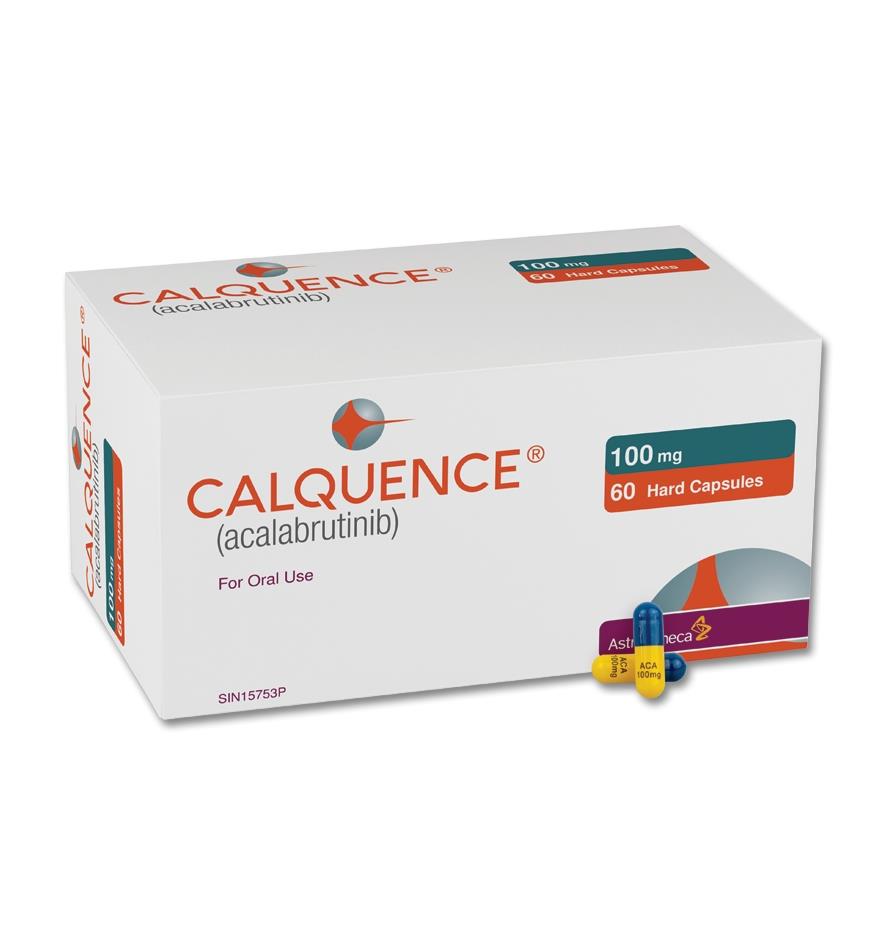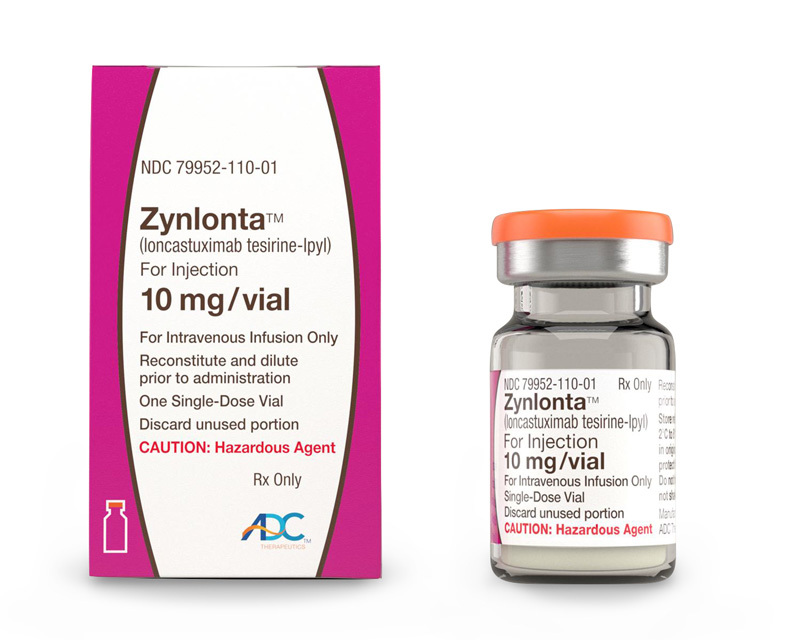Calquence (acalabrutinib) vs Zynlonta (loncastuximab tesirine-lpyl)
Calquence (acalabrutinib) vs Zynlonta (loncastuximab tesirine-lpyl)
Calquence (acalabrutinib) is a Bruton's tyrosine kinase (BTK) inhibitor used primarily for the treatment of certain types of B-cell malignancies, such as chronic lymphocytic leukemia (CLL) and mantle cell lymphoma (MCL). Zynlonta (loncastuximab tesirine-lpyl) is an antibody-drug conjugate specifically targeting CD19, a protein expressed on the surface of B-cell lymphomas, and is used for the treatment of relapsed or refractory diffuse large B-cell lymphoma (DLBCL). When deciding between the two, it is crucial to consider the specific type of B-cell lymphoma diagnosed, as each medication is tailored for different indications and has a distinct mechanism of action, potential side effects, and efficacy profile.
Difference between Calquence and Zynlonta
| Metric | Calquence (acalabrutinib) | Zynlonta (loncastuximab tesirine-lpyl) |
|---|---|---|
| Generic name | Acalabrutinib | Loncastuximab tesirine-lpyl |
| Indications | Treatment of mantle cell lymphoma, chronic lymphocytic leukemia, and small lymphocytic lymphoma | Treatment of relapsed or refractory diffuse large B-cell lymphoma |
| Mechanism of action | Bruton's tyrosine kinase (BTK) inhibitor | Antibody-drug conjugate targeting CD19 |
| Brand names | Calquence | Zynlonta |
| Administrative route | Oral | Intravenous |
| Side effects | Headache, diarrhea, muscle pain, bruising, and anemia | Fatigue, neutropenia, thrombocytopenia, gastrointestinal toxicity, and hyperglycemia |
| Contraindications | Hypersensitivity to acalabrutinib or its excipients | Hypersensitivity to loncastuximab tesirine-lpyl or its excipients |
| Drug class | Small molecule kinase inhibitor | Antibody-drug conjugate |
| Manufacturer | AstraZeneca | ADC Therapeutics |
Efficacy
Efficacy of Calquence (Acalabrutinib) in Treating Lymphoma
Calquence (acalabrutinib) is a medication specifically designed to treat certain types of lymphoma, particularly mantle cell lymphoma (MCL) in adults who have received at least one prior therapy. It is a Bruton's tyrosine kinase (BTK) inhibitor, which works by blocking BTK, a protein that helps some cancer cells survive and grow. Clinical trials have demonstrated that acalabrutinib can lead to high response rates in patients with relapsed or refractory MCL. The efficacy of acalabrutinib in these patients has been observed in terms of overall response rate (ORR), duration of response (DOR), and progression-free survival (PFS), with many patients experiencing significant and sustained responses to the treatment.
Efficacy of Zynlonta (Loncastuximab Tesirine-lpyl) in Treating Lymphoma
Zynlonta (loncastuximab tesirine-lpyl) is a CD19-directed antibody and alkylating agent conjugate indicated for the treatment of adult patients with relapsed or refractory large B-cell lymphoma after two or more lines of systemic therapy. This includes diffuse large B-cell lymphoma (DLBCL), DLBCL arising from low grade lymphoma, and also high-grade B-cell lymphoma. The efficacy of Zynlonta has been evaluated in a multicenter, single-arm, open-label clinical trial. Results from this study have shown a meaningful overall response rate with a significant proportion of patients achieving complete response. The duration of response in patients who achieved a response has also been a point of interest, with some patients maintaining the response for an extended period.
Both Calquence and Zynlonta represent significant advancements in the treatment of different forms of lymphoma. The efficacy of these drugs has been supported by clinical trial data, which has led to their approval by regulatory agencies such as the U.S. Food and Drug Administration (FDA). As with all medications, the efficacy of Calquence and Zynlonta may vary among patients, and they are typically used when other treatments have not been successful or are not suitable for the patient.
It is important for healthcare providers to consider the individual patient’s type of lymphoma, previous treatments, and overall health when deciding to use these medications. Patients receiving Calquence or Zynlonta should be monitored for side effects and responses to treatment, and the use of these drugs should be part of a comprehensive treatment plan that may include other therapies and supportive care measures.
Regulatory Agency Approvals
Calquence
-
European Medical Agency (EMA), European Union

-
Food and Drug Administration (FDA), USA

-
Health Canada

-
Pharmaceuticals and Medical Devices Agency (PMDA), Japan

-
Therapeutic Goods Administration (TGA), Australia

Zynlonta
-
European Medical Agency (EMA), European Union

-
Food and Drug Administration (FDA), USA

Access Calquence or Zynlonta today
If Calquence or Zynlonta are not approved or available in your country (e.g. due to supply issues), you can access them via Everyone.org.
How it works

Make an enquiry
Choose the medicine you want to buy, answer a couple of questions, and upload your prescription to speed things up. We’ll get back to you within 24 hours.


Make an enquiry
Choose the medicine you want to buy, answer a couple of questions, and upload your prescription to speed things up. We’ll get back to you within 24 hours.


Breeze through the paperwork
We'll guide you through the required documents for importing unapproved medicine, ensuring you have all the necessary information.


Get a personalized quote
We’ll prepare a quote for you, including medicine costs and any shipping, administrative, or import fees that may apply.


Receive your medicine
Accept the quote and we’ll handle the rest - sourcing and safely delivering your medicine.

Some text on this page has been automatically generated. Speak to your physician before you start a new treatment or medication.
Let's talk
If you have any questions, call us or send us a message through WhatsApp or email:
Contact us




